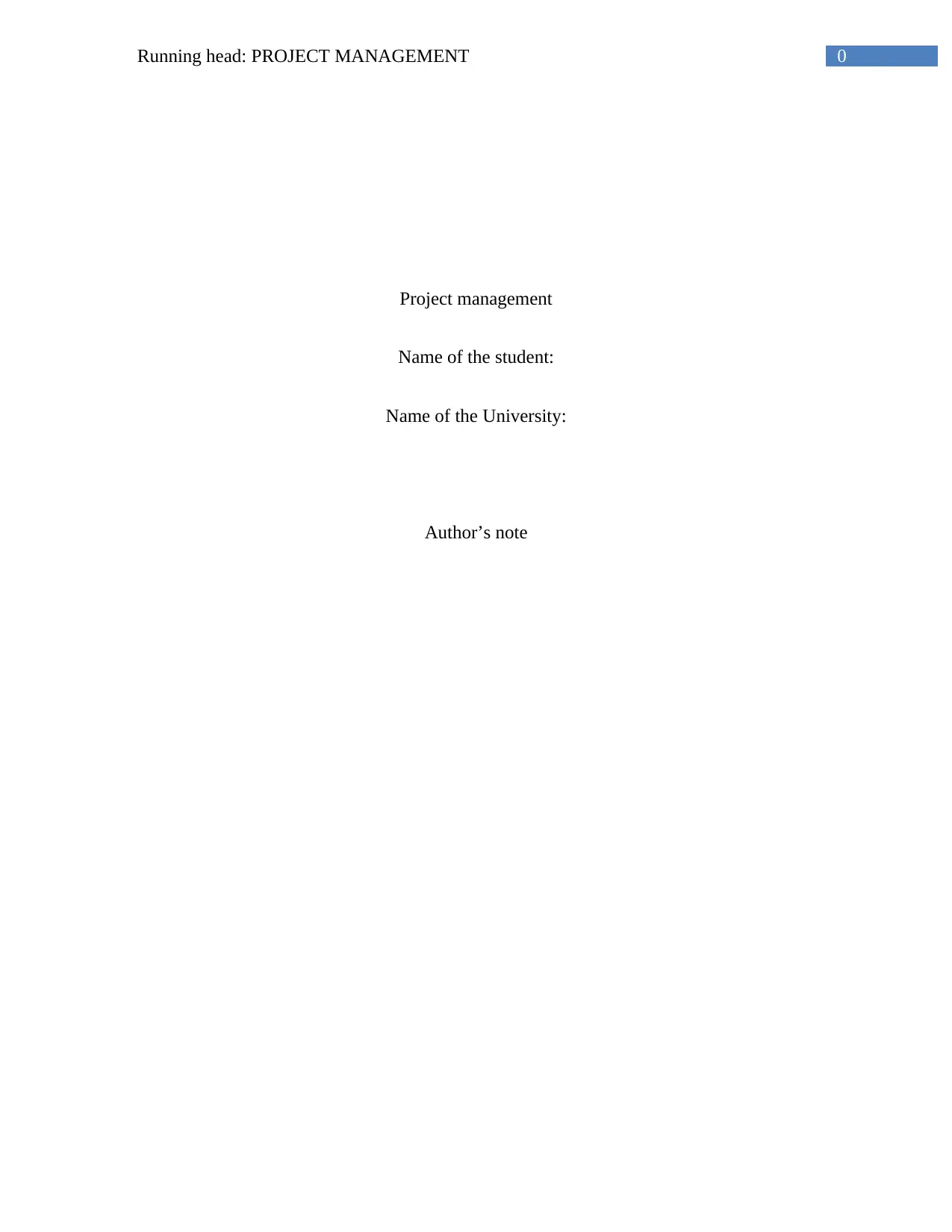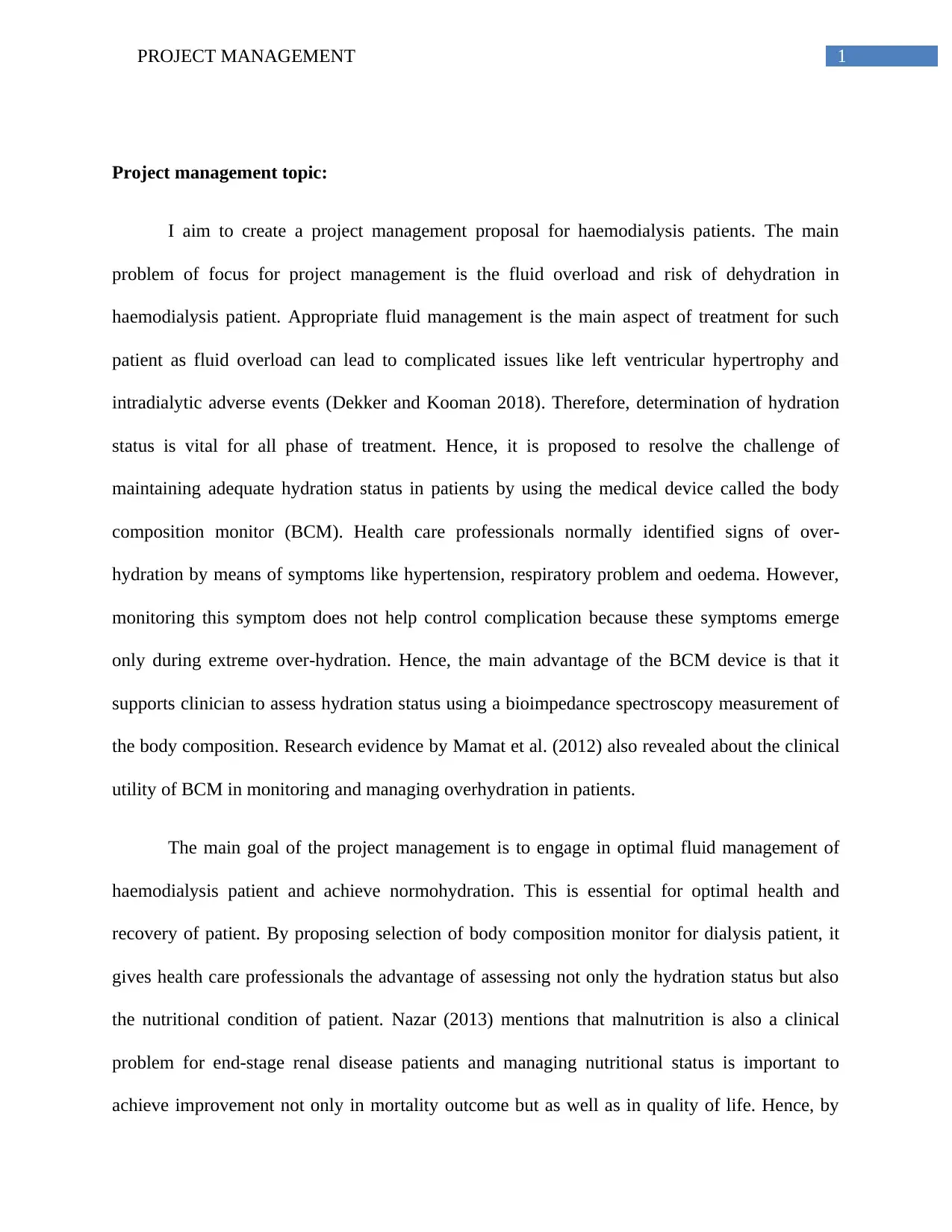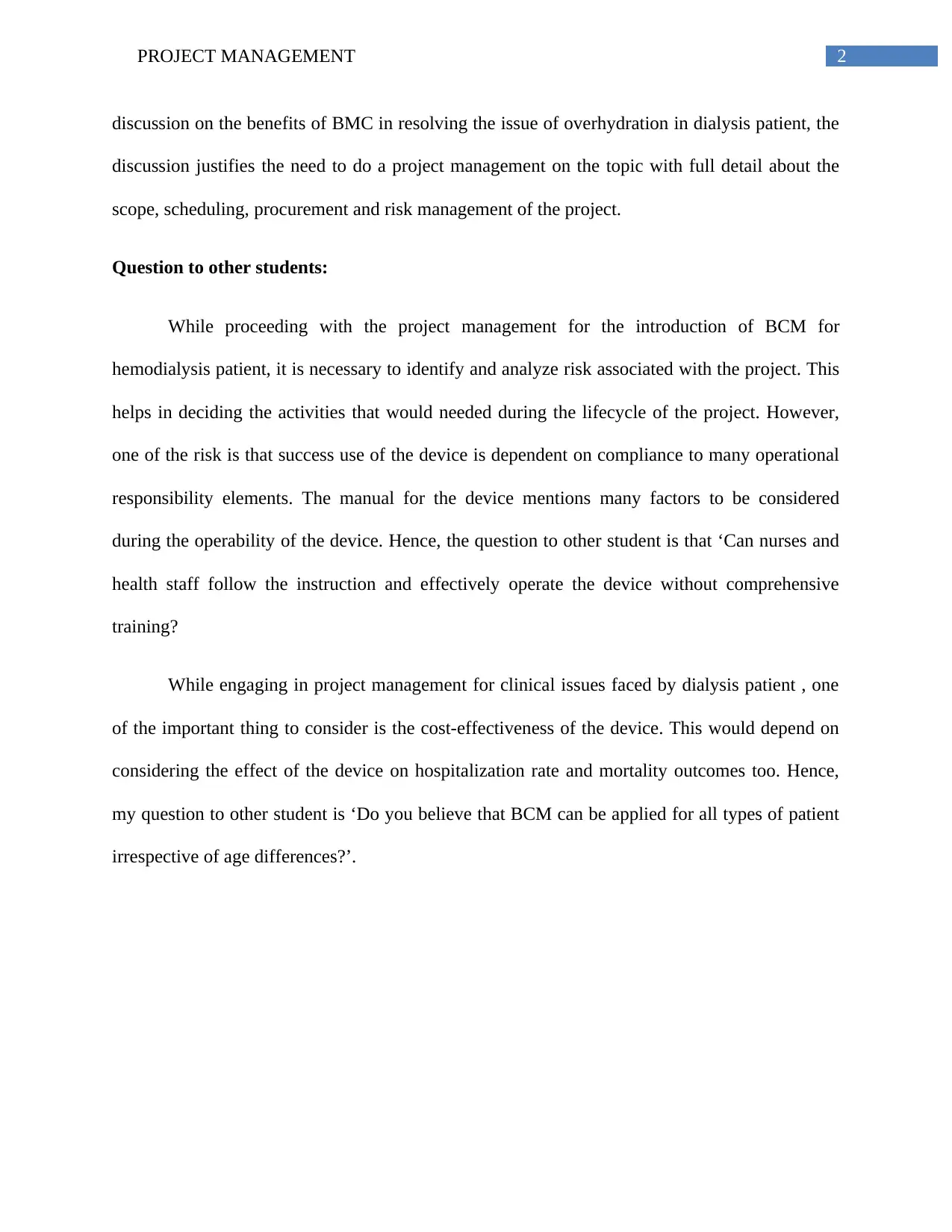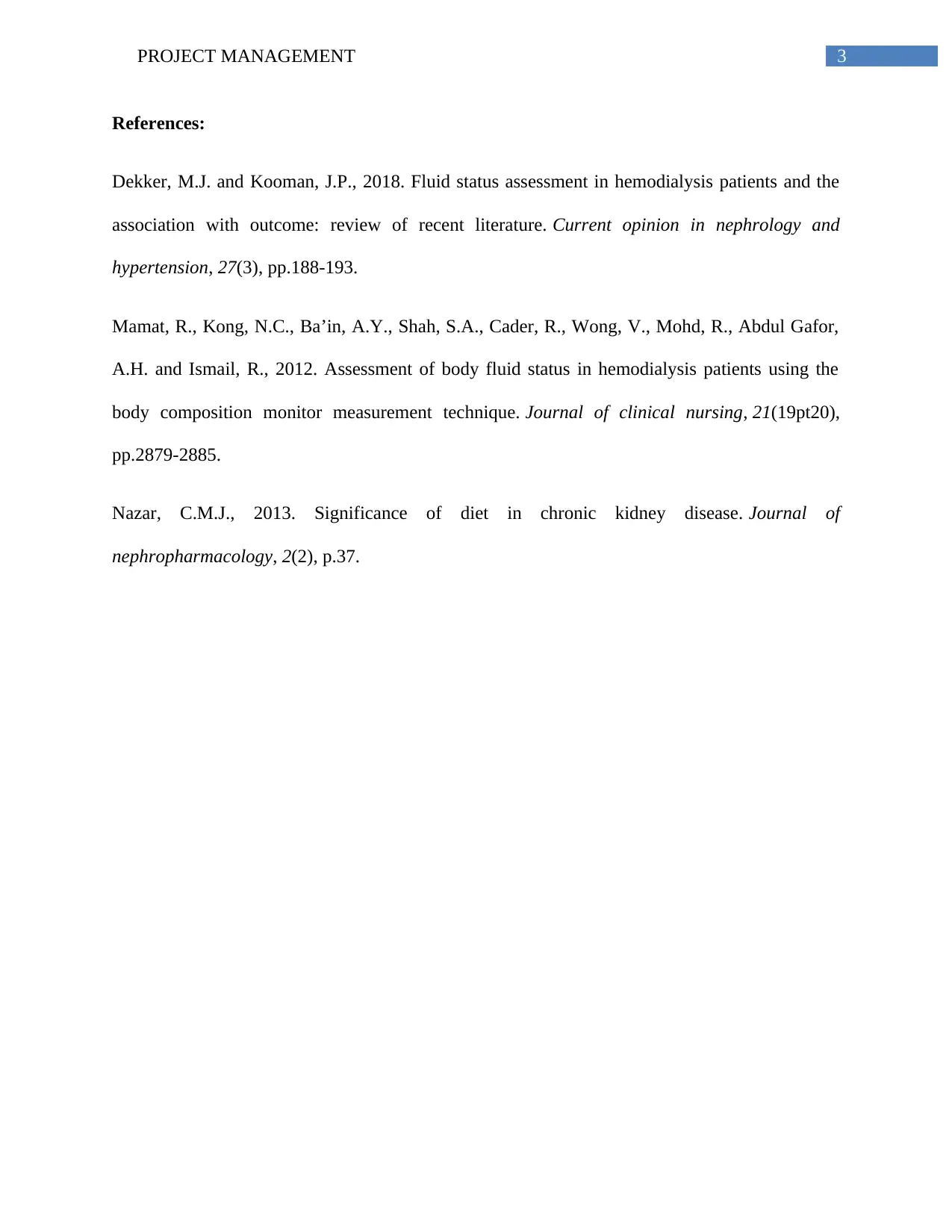Project Management Proposal: BCM for Fluid Balance in Haemodialysis
VerifiedAdded on 2023/06/03
|4
|721
|340
Discussion Board Post
AI Summary
This discussion post presents a project management proposal focused on addressing fluid overload and dehydration risks in haemodialysis patients through the implementation of a Body Composition Monitor (BCM). The proposal highlights the importance of optimal fluid management for patient health, the advantages of using BCM for accurate hydration status assessment, and the clinical utility of BCM in monitoring and managing overhydration. It also raises questions for discussion regarding the operational challenges of using the device and its cost-effectiveness across different patient demographics, aiming to foster a comprehensive understanding of the project's scope, potential risks, and benefits in improving the quality of life for dialysis patients.
1 out of 4











![[object Object]](/_next/static/media/star-bottom.7253800d.svg)